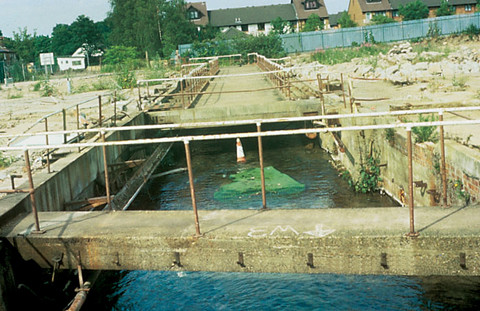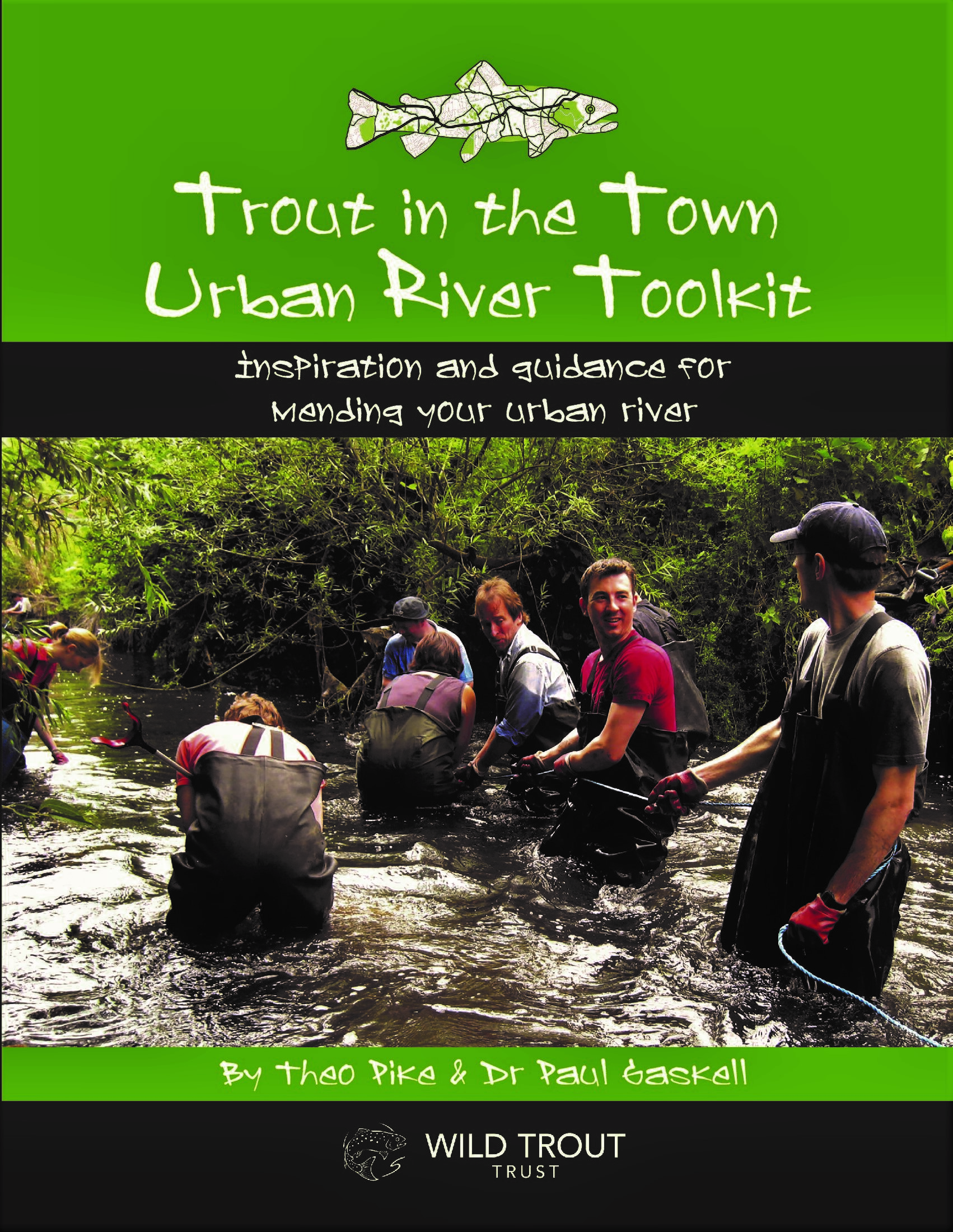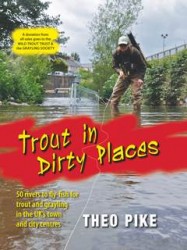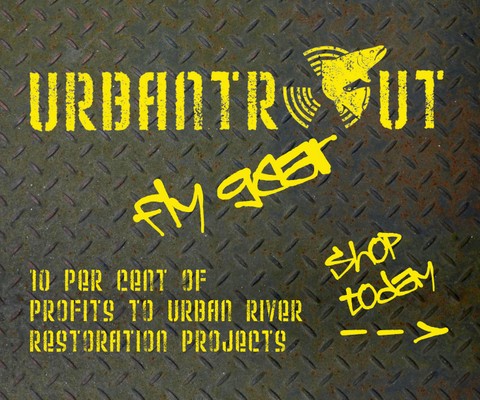Whenever somebody asks me what’s the best example of urban river restoration you know? I always tell them about the upper Wandle.
Right across the road from my own front door, the ancient weir at Butter Hill Mill has probably impounded this stretch of chalkstream for at least 700 years. By the nineteenth century, a complex of foundries, paper mills, corn mills and watercress beds had emphatically erased all vestiges of the river’s original upper course.
At least two of these sites were eventually converted into chemical factories, and the picturesque old millpond was canalised into a single concrete culvert through BP’s Mill Lane works. According to long-time local residents, cages of trout were periodically suspended in this channel to test the water quality. The sooner they died, the more urgently someone needed to check the discharges of hydrocarbons and vinyl compounds into the river…
But when the factories finally closed around 1995, and the area began to be redeveloped for housing, the newly-formed Environment Agency grasped the opportunity to try some real river restoration. After more than a metre of contaminated soil had been scraped off the whole site, project manager Dave Webb began rebuilding the river from the gravels up: replacing one concrete bank with gabion baskets, regrading the other and planting willows, poplars, sedges and other riparian vegetation. Ranunculus, watercress, forget-me-not and mint drifted down from Grove Park, and the gravels were colonised by bullhead, stickleback and stone loach.
Fifteen years later, this stretch of the Wandle is still one of the biggest paradoxes we know. Highly urbanised and horribly over-abstracted, only the local water company’s unique recirculation system actually keeps it flowing at all – yet you can almost guarantee to see a kingfisher flashing along this cool green corridor any day of the week, and the Butter Hill wheel pool holds a small population of determinedly spawning Trout in the Classroom graduates.
As a result, the Wandle’s Carshalton arm probably represents the region’s first best hope of getting an urban water body up to Good Ecological Potential for the purposes of the Water Framework Directive, and the Wandle Trust and Wild Trout Trust have been steadily enhancing this whole reach over the past two years: reducing small stilling weirs to improve fish passage, installing large woody debris and more than 60 tonnes of gravel, and generally trying to max out the habitat in preparation for kick-starting a self-sustaining population of truly wild trout.
In short, as Dave’s before and after photos show… given time and determination, there’s quite literally nothing you can’t do to rebuild an urban river…
(Photos: thanks to Dave Webb)






yes its fine in south london where thames water spent thousands to lower there fine where in the north thames area River Roding, Lee, Ingrebourne, Beam, Weald brook and cripsey brook they dont prosecute anyone and replace 5lb barbel with half ounce dace. you are very lucky!
Andrew, apologies for the delay in finding your comment… caught in my super-paranoid spam filter!
Yes, the fact that Thames Water faced up to the consequences of the 2007 pollution by supporting river restoration on the ground has certainly helped to put the Wandle on a much stronger footing for the future, and on balance I think it was right that the court recognised their (still) uniquely collaborative approach after the incident and reduced the fine. You may be aware of a similar situation now unfolding on the Crane, where I understand that Thames Water are now waiting for local groups to decide the best way forward for the river before agreeing a restoration plan with appropriate levels of compensation.
As to the situation on the other rivers you mention: I’m not immediately familiar with them, but have no doubt that the EA would prosecute if they found cause (equally, under current practice, none of these fines would ever find their way back to the river). Have you taken advice from the Angling Trust?
Theo
I liked the piece as this has poignancy for my family as we left Carshalton for Australia in 1995.
my son used the environs as an adventure playground and he and his friends used to camp overnight and cross on the pipeline over. One of them has adventures for real now in the British Army.
great to hear of progress. I was lucky to be able to fish in the country in Lancashire as a boy.
Great to see the rivers reclaimed. The Irwell in Manchester will take som work!
Thanks Paul… yes, this part of Carshalton seems to have changed out of all recognition, and the Wandle is still getting better. As you say, big systems like the Irwell will take a lot more work, but it’s amazing how quickly any stream or river can start to bounce back when our towns and industries stop using it as a drain. Very best and hope life is good for you in Australia!